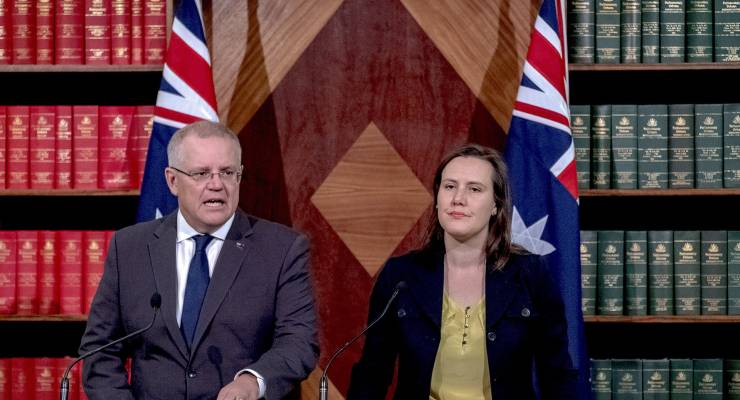
The royal commission into banks has revealed (and will continue to reveal) an appalling list of allegations. A spooked government, while not quite admitting they were wrong to resist putting the commission in place, have responded with threats of jail time and greater fines.
The Australian Securities and Investments Commission (ASIC) has long been derided as ineffectual and toothless. So is there a better system of regulation available? What can we learn from equivalent countries and their systems?
Australia
ASIC has long argued (with some justification) that it is under resourced. On top of that, the law doesn’t give it that much of stick.
In contrast, the Australian Transactions Reports & Analysis Centre (AUSTRAC) does have a decent whacking stick in the Anti-Money Laundering and Counter-Terrorism Financing Act. The act provides for a maximum penalty of $18 million per instance for breaches by a corporation of AUSTRAC’s requirements to identify and report suspicious transactions, and regarding money-laundering and financing of terrorism. It’s under this legislation that CBA is being threatened with the $960 billion fine (which predates the commission’s work), and under which Tabcorp received a $45 million fine in March of last year, still an Australian record.
The Australian Securities and Investments Commission Act, however, only exposes a company found guilty of engaging in false and misleading representations of financial services to the risk of a $2.1 million fine, while breaching the Corporations Act can result in a corporation being fined $1 million.
Scott Morrison and Kelly O’Dwyer have finally started putting in place a more hefty punishment regime — amending the Corporations Act, increasing jail terms to 10 years, and increasing corporate fines to whichever is the largest of:
- $10.5 million;
- three times the ill-gotten gains or loss avoided; or
- 10% of annual turnover (provided that’s not higher than $210 million).
But of course, that’s only half the problem. ASIC is routinely criticised for having very little will.
It ought be remembered that the royal commission’s revelations are only the latest in a long history of scandals to afflict the big banks of Australia, and only the latest to call ASIC’s credibility into question. They were the subject of a scathing 2014 Senate inquiry report following another Commonwealth Bank scandal (this time around financial advisers who were found to have ruined many customers with inappropriate advice. The committee described ASIC as “too slow to act, lack[ing] transparency and … too trusting of the big end of town”.
United States
In February, Crikey considered what would happen to CBA if it were subject to the regulation of the US Federal reserve, and the ASIC equivalent the US Securities and Exchange Commission, by looking into what they did to Wells Fargo and Rio Tinto:
The Fed skipped a fine, and instead froze Wells Fargo’s balance sheet for at least a year, and ordered the bank to sack four more directors, on top of the two [already fired], plus the chair and CEO, who have already been removed. The bank will be able to continue current activities including accepting customer deposits or making consumer loans, but for every dollar of new assets it takes on, it will have to shed the same amount from its balance sheet.
On top of that the Consumer Financial Protection Bureau imposed a whopping fine of $1 billion dollars on the bank, leaving the $210 million cap on the new regulations look fairly piffling.
United Kingdom
The UK Financial Conduct Authority (FCA) has a wide range of enforcement powers — criminal, civil and regulatory — in place to protect consumers and to take action against firms and individuals that do not meet “standards”.
At the higher end, the FCA can take action such as withdrawing a firm’s authorisation, issuing fines against firms and individuals who commit market abuse or breach competition laws, and bring criminal prosecutions “to tackle financial crime, such as insider dealing, unauthorised business and false claims”. Most recently they fined Rio Tinto £24.7 million for breaching disclosure and transparency rules, an issue on which ASIC have been quiet and slow. They can (and do) send individuals to prison.
***
Of course these regulators are not perfect — the FCA has been criticised for failing to secure enough convictions against insider traders, while the failure of US regulators to properly punish those responsibly for the global financial crisis has long been a source of consternation. But both clearly have greater power, and more importantly, the will to use them than what we have here.








Tweedledee and Tweedledum; don’t expect them to enact this little battle anytime soon.
The United States has deferred prosecution laws, which is why those at Wells Fargo lost their jobs, but not their liberty.
Seems like they get off easy.
Losing one’s job (I assume they kept their ill-gotten gains) would be preferable to time in prison.
I believe the Abbott government was looking into creating deferred prosecution laws in Australia.
Come on Friends and colleagues of the Business Sector. Donate now to the LNP.
Campaign against the Union Controlled Labor Party. Run advertising against Labor Policy.
Get on or in the media to rail against the Labs and Greens. Denigrate all Minor Parties and Independents.
Together we the Bosses and our Govt. puppets will never be defeated.
Then after the LNP election victory all this Anti Business nastiness and Commissions, inquiries, and the like will quietly go away.
Let our version of FREE enterprise stand supreme!
What is the point of donating tothe Liberal Party if not to buy protection? The LNP is honoring its implicit agreement with the banks and various ex-bankers.
Sod the US or UK for dealing with bad bankers.
The best effort by far is Iceland.
https://www.independent.co.uk/voices/iceland-has-jailed-26-bankers-why-wont-we-a6735411.html